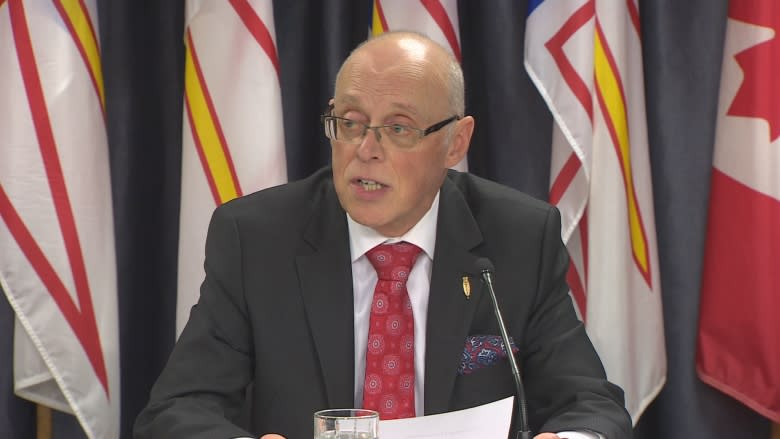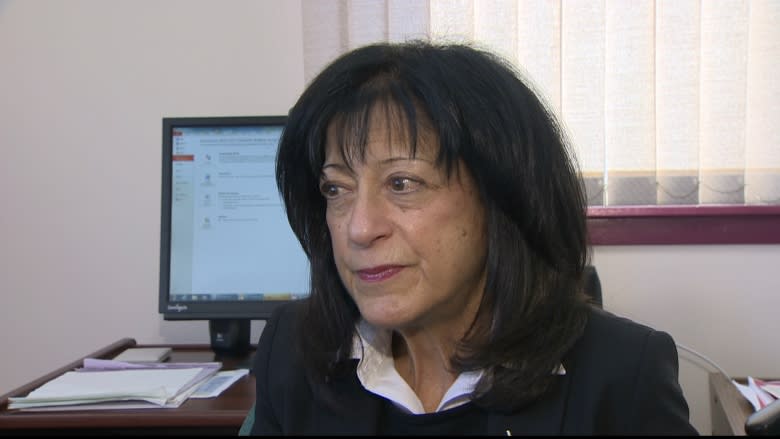New law would force youth 'lost in a world of addiction' into detox treatment
Children as young as 12 who are addicted to drugs or alcohol will be locked up and ordered to take part in a detoxification program against their will, if new legislation the provincial government's proposing is adopted.
Newfoundland and Labrador Health Minister John Haggie announced details of Bill 55, an Act Respecting Secure Withdrawal Management For Young Persons, Thursday morning.
"This legislation is not about a teenager who sneaks a beer on the weekend nor is it about a teenager who sneaks a toke at a party," said Haggie.
"This legislation is about a small group of youth lost in a world of addiction. It's about those parents and those families who have nowhere to turn — who are desperate for help in some cases to save the lives of their children."
Must volunteer for detox now
Current detox treatment, also known as withdrawal management, is only given to young people who volunteer for it, Haggie said.
Voluntary in-patient detox involves spending a week or two in hospital being weaned off drugs or alcohol.
Haggie, who is also a medical doctor, said the proposed legislation is necessary for rare occasions when detaining someone and forcing them into secure withdrawal management treatment is justified.
"Depriving a young person of his or her liberty to undergo medical treatment is an extraordinary measure," he said.
"As such, Bill 55 balances a young person's need for health care with the right not to be detained against their will by establishing strict criteria for admission."
Criteria must be met to order treatment
The proposed act allows for the apprehension, detainment and treatment of a young person, between the age of 12 and 18, who meets stringent criteria.
Parents, physicians, social workers and other health care professionals would be able to make an application to an admissions committee for secure withdrawal management.
All of the following criteria need to be met for an order for secure withdrawal management to be made:
- The young person is abusing one or more drugs severely and persistently and, as a result, is likely to deteriorate substantially.
- The young person is likely to cause harm to himself or herself or others if he or she is not detained for a period of secure withdrawal management.
- A period of secure withdrawal management is likely to reduce the risk of the young person causing harm to himself or herself or to another person.
- The young person is in need of a period of secure withdrawal management to facilitate the young person's supervised withdrawal from drugs.
- The young person is unable to fully appreciate the nature and consequences of his or her drug addiction or to make an informed decision regarding cessation of drug abuse.
- Other available interventions are inadequate in the circumstances.
- The order is in the best interests of the young person.
Parent advocate applauds change
Ruby Hoskins, chair of a group called Stand Against Drugs and a past president of the province's Federation of School Councils, called the announcement a "monumental day for Newfoundland and Labrador."
"I have seen first-hand the impact that addictions have on our young people and the families that it has destroyed," she said.
"So I think this legislation will give hope back to some families in the war against addictions and help young people get the treatment they need."
Nova Scotia moving away from detox
Not everyone agrees detox is a good idea for opioid drug addictions.
- CBC INVESTIGATES | Nova Scotia pushing more addicts to methadone, away from detox
A CBC News investigation has found the Nova Scotia Health Authority wants to focus on long-term methadone therapy to treat opioid addiction instead of in-patient detox.
The head of addictions services in Nova Scotia said detox treatment can turn deadly in worst-case scenarios.
Detox for opioid addicts "doesn't work," said Dr. Linda Courey, director of mental health and addictions for the Nova Scotia Health Authority.
"We really want to avoid that use of in-patient withdrawal management … for people with opioid use disorder."
Courey said a major problem with opioid detox is the fact many patients fail to follow up with outpatient treatment and end up relapsing. In those cases, detox can turn deadly.
N.L. given different advice
When asked about Nova Scotia's experience, Haggie said he is not dismissing it, but said he has been receiving a very different message during consultations in Newfoundland and Labrador.
"Clinical practice changes over the years as evidence becomes available. This is best evidence we have in this province and I would commend it on that basis."
Detox treatment is already being provided to people between the ages of 12 and 17 at the Hope Valley Centre in Grand Falls-Windsor.
Haggie said four of 12 beds at the facility will be reserved for secure withdrawal management once the legislation passes. He added there is currently not wait time for a bed, and he doesn't expect that will change.





